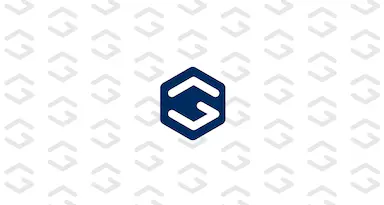Tulsa, Okla., Aug 22, 2021 by Bruce W. Schultz - If there is a silver lining to 2020, it is that the country is focusing more on community financial weaknesses than it was before the pandemic.
The most alarming vulnerability is the lack of financial decision-making knowledge and skills possessed by many consumers. This deficiency prevents many Americans, including Oklahomans, from attaining the economic benefits of homeownership.
According to FINRA’s 2018 National Financial Capability Study, two in three Oklahomans were not able to answer basic consumer financial questions on topics like compound interest and the effect a shorter term has on the total loan interest paid.
In another concerning sign, 35% of Oklahomans used high-cost, non-bank borrowing options, such as payday loans or pawn shops, and more than half did not compare offers when choosing a credit card.
Despite the increased efforts by public policy makers, schools, and community groups to increase access to financial education in recent years, there remains significant financial literacy gaps across the demographic spectrum, including young adults.
Everfi’s 2019 College Student Survey found only 35% reported having ever taken a personal financial education course, with barely half saying they felt adequately prepared to manage their own finances.
Children from low-income households and communities of color are less likely to have access to financial education.
NextGen’s 2021 State of Financial Education Report found that in schools where 75% or more of the student population are either minorities or eligible for free or reduced lunches, less than 8% were guaranteed to take a standalone personal financial course prior to graduation.
According to the NFCC’s 2019 Consumer Financial Literacy Survey, barriers to homeownership may be in part the direct result of financial illiteracy, including poor or no credit history and a lack of understanding on homebuying basics.
Given their position in the community, banks can play a critical role in bridging the knowledge gap by promoting financial education.
Homeownership has long been the foundation on which Americans ascend the economic ladder, as it creates wealth accumulation in the form of equity and provides greater access to credit.
While there are challenges with housing supply, creating a more financially literate society will produce opportunities for more Americans to access the benefits of ownership.
Data shows financially educated consumers are more likely to experience better long-term housing outcomes.
A 2017 study indicates borrowers who received pre-purchase homebuyer counseling meeting HUD standards were 42% less likely to experience foreclosure.
The study also reviewed the loan performance of more than 18,000 homebuyers who received pre-purchase counseling through NeighborWorks.
Buyers receiving counseling were 33% less likely to become 90 days delinquent on their loan during the first two years versus those without counseling.
There is no shortage of excellent resources banks can utilize, including FDIC’s Money Smart curriculum or the Consumer Financial Protection Bureau’s inventory of materials. Fannie Mae and Freddie Mac both have consumer-friendly programs explaining the process and financial aspects of homebuying.
Banks should partner with nonprofits, community development organizations, and other stakeholders to promote a greater availability of these resources through a variety of means, including virtual delivery.
Financially literate consumers are enabled to make better decisions, avoid financial traps, and build long-term wealth over the course of their lives. A financially educated consumer is ultimately the best protected consumer.
A greater emphasis on financial education across our communities is one of the best ways banks can help equip American consumers with the necessary skills to become successful homeowners which will ultimately make for a more financially resilient country.
About Gateway First Bank
Gateway First Bank is a leading financial institution that provides banking and mortgage services for consumers and commercial customers. Headquartered in Jenks, Oklahoma, Gateway is a $1.9 billion asset sized bank with a strong mortgage operation. Gateway is one of the largest banking and mortgage operations in the United States with six bank branches in Oklahoma, over 160 mortgage centers in 42 states, and almost 1,600 employees. Learn more at www.GatewayFirst.com. Member FDIC, Equal Housing Lender (NMLS 7233)
Follow Gateway First on Facebook (https://www.facebook.com/GatewayFirstBank/), LinkedIn (https://www.linkedin.com/company/gatewayfirst/) and Twitter (https://twitter.com/Gateway1st).
